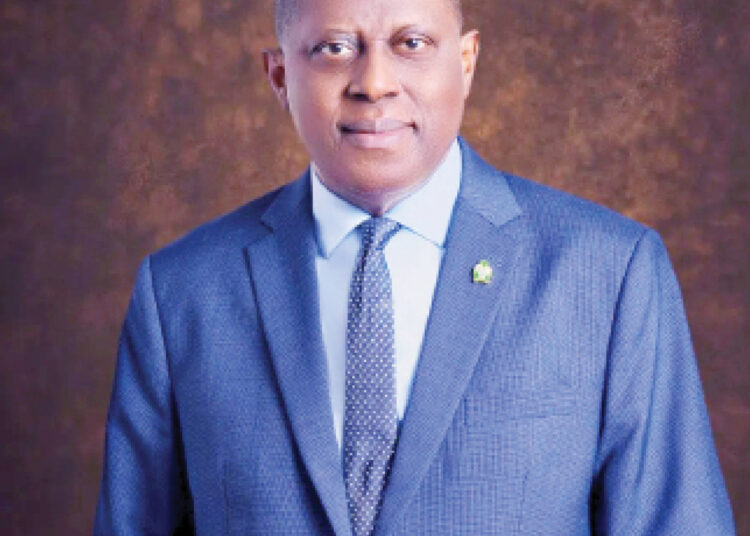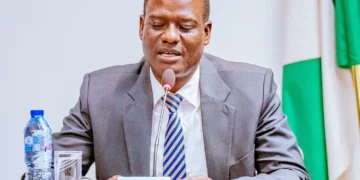Since President Bola Tinubu assumed office in May 2023, Nigeria’s banking industry has undergone a dramatic transformation. A bold slate of reforms, ranging from sweeping recapitalisation mandates to regulatory overhauls and leadership reshuffles, has left an indelible mark on the country’s economy.
The sector, long grappling with sluggish growth, a volatile naira, and foreign exchange bottlenecks, now finds itself at the centre of Tinubu’s broader economic realignment agenda. A trend some analysts say has led to a form of stability and predictability that is good for the economy.
One of the most defining moves came in March 2024, when the Central Bank of Nigeria (CBN) announced a mandatory bank recapitalisation programme, ordering all commercial banks to increase their minimum capital bases within two years.
While the industry had been given an idea that a recapitalisation was in the works in November 2023, the new thresholds rattled industry stakeholders for a while. International banks under the new threshold are to have N500 billion capital base, N200 billion for national banks, and N50 billion for regional banks.
The recapitalisation, which is part of the administration’s target of a $1 trillion economy, is also designed to fortify banks against systemic shocks, particularly in light of the macroeconomic turbulence that followed the naira’s massive devaluation. Since mid-2023, the local currency has lost nearly 70 per cent of its value, driven by the CBN’s unification of exchange rates and liberalisation of the foreign exchange market.
Under the new recapitalisation rules, banks cannot rely on retained earnings or existing capital buffers. Instead, they must raise fresh equity, a wave of rights issues, mergers, and potential license downgrades by next year.
The administration’s most controversial move came just weeks into Tinubu’s presidency. In June 2023, the CBN abandoned its long-defended managed exchange rate system, allowing the naira to float freely. The result was immediate: a single-day 23 per cent devaluation of the currency, triggering inflation and liquidity stress.
In a follow-up move, the CBN automated all foreign currency transactions in late 2024, replacing the opaque over-the-counter system with a transparent, market-driven structure. The objective, officials say, is to encourage investor confidence and eliminate arbitrage. However, these policies came at a cost as inflation surged past 30 per cent by early 2024.
Aside from recapitalisation, one major event under the Tinubu administration is the change of baton at the apex bank. Cardoso’s regime is also associated with a return to policy orthodoxy, reversing years of opaque interventions under his predecessor. The re-establishment of trust with multilateral institutions and investors has been central to this effort.
In an effort to tame inflation and stabilise the financial system, the CBN’s new leadership turned hawkish. Under governor Yemi Cardoso, who took office in September 2023, following the suspension of Godwin Emefiele, the bank has hiked the Monetary Policy Rate (MPR) from 18.75 per cent to 22.75 per cent.
Alongside interest rate hikes, the CBN raised the Cash Reserve Ratio (CRR) for commercial banks from 32.5 per cent to 50 per cent, and merchant banks from 10 per cent to 16 per cent. These measures have tightened liquidity, with knock-on effects on credit to the real sector.
In May 2024, the government backed down from a controversial 0.5 per cent cybersecurity levy on electronic transactions, following widespread public backlash. Though initially introduced by the CBN under the Cybercrimes Act, President Tinubu ordered a suspension of its implementation, pending a legislative review.
This move highlights the delicate balance the administration must maintain between revenue generation and public sentiment, particularly in a cash-strapped but digitally evolving economy. In contrast, the rollout of the AfriGo domestic card scheme, a CBN-led initiative launched in early 2023, has gained traction under Tinubu’s government.
Designed to reduce dependence on international card networks like Visa and Mastercard, AfriGo has processed over 3 million orders by March 2024. The scheme supports financial inclusion and offers a cheaper alternative for digital payments.
Meanwhile, the CBN has recorded an uptick in foreign reserves, rising from $35.094 billion as at May, 30, 2023 to $38.552 billion as at May 22, 2025. The increase reflects better foreign exchange inflows from oil receipts and remittances, aided by improved transparency in the forex market.
Assessing the past two years, head, Financial Institutions Ratings at Agusto & Co, Ayokunle Olubunmi noted that, as much as there are positives, there are also policies that have created negative effects on the economy.
According to him, the elevated cash reserve debits have adversely impacted the industry’s liquidity and funding cost, while inflationary pressure and steep naira depreciation have increased the operating cost for many corporates particularly manufacturers significantly
Asides these, he noted that, the steep naira devaluation has bloated the asset base with significant impact on regulatory costs such as the AMCON levy, while asset quality pressures have increased as obligors grapple with the harsh economic reality.
On the other hand, he noted that the various policies have cumulatively produced a relatively predictive and stable regulatory environment. Olubunmi also pointed out that the country now has a more understanding and listening central bank.
On the recapitalisation, he said, it would increase the capital buffer of the banks and support business growth. Other positives he mentioned include relatively better access to forex on the back of the harmonisation of the various forex windows as well as the high yields on treasury securities have supported profitability.
Over the past two years, the Tinubu era has ushered in the most consequential reforms in Nigeria’s banking industry in over a decade. Whether these moves will translate into lasting financial stability and economic growth remains the central question for policymakers and investors alike.





